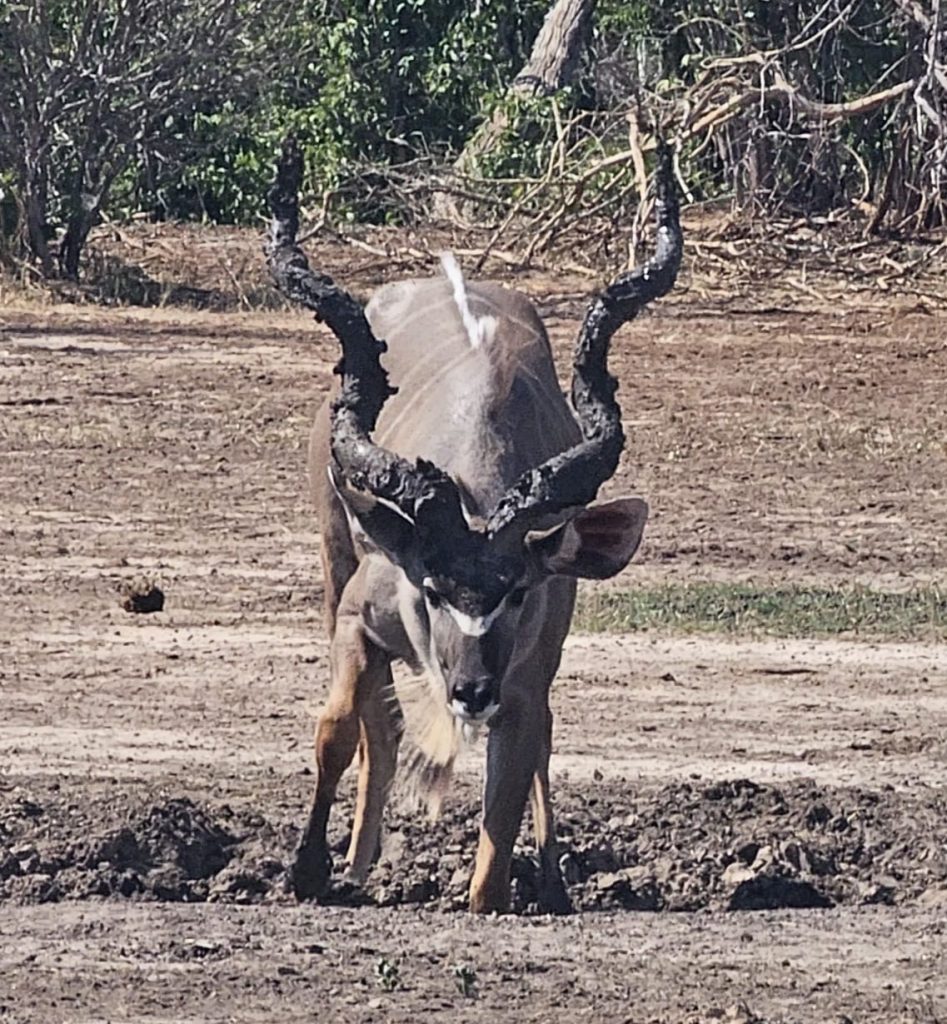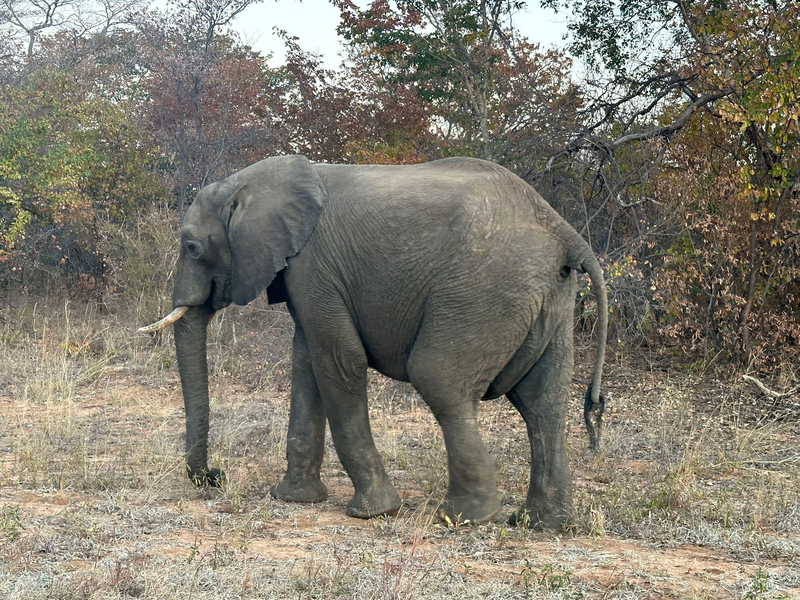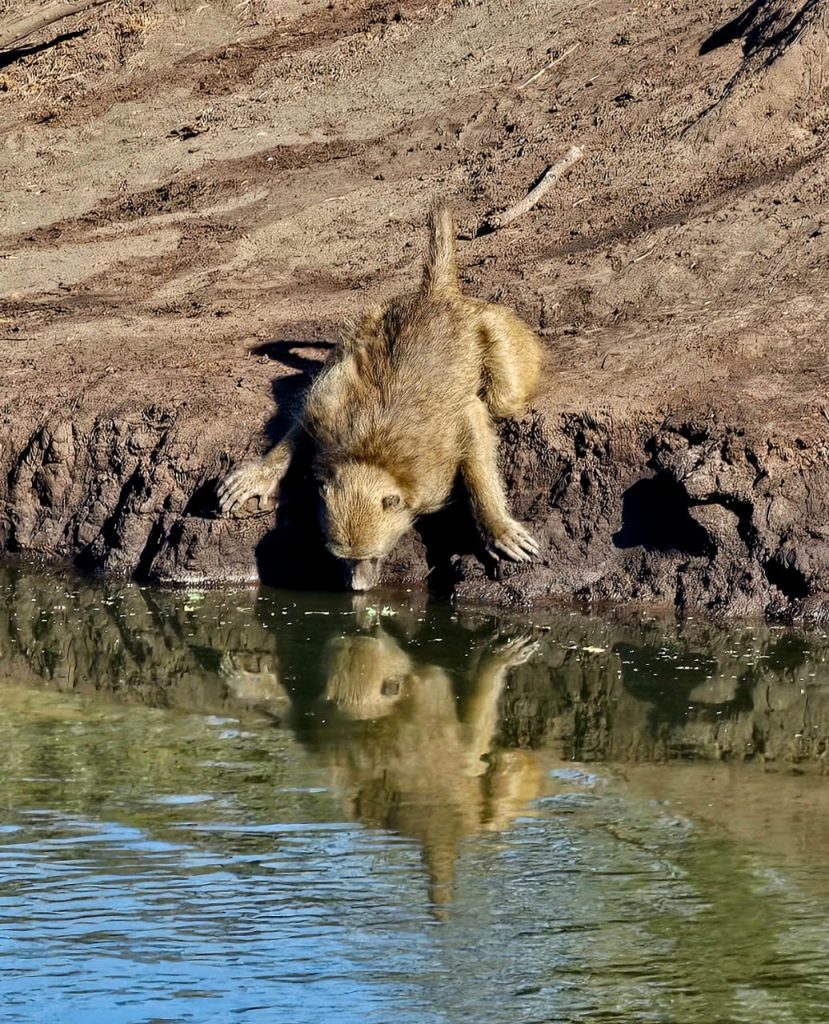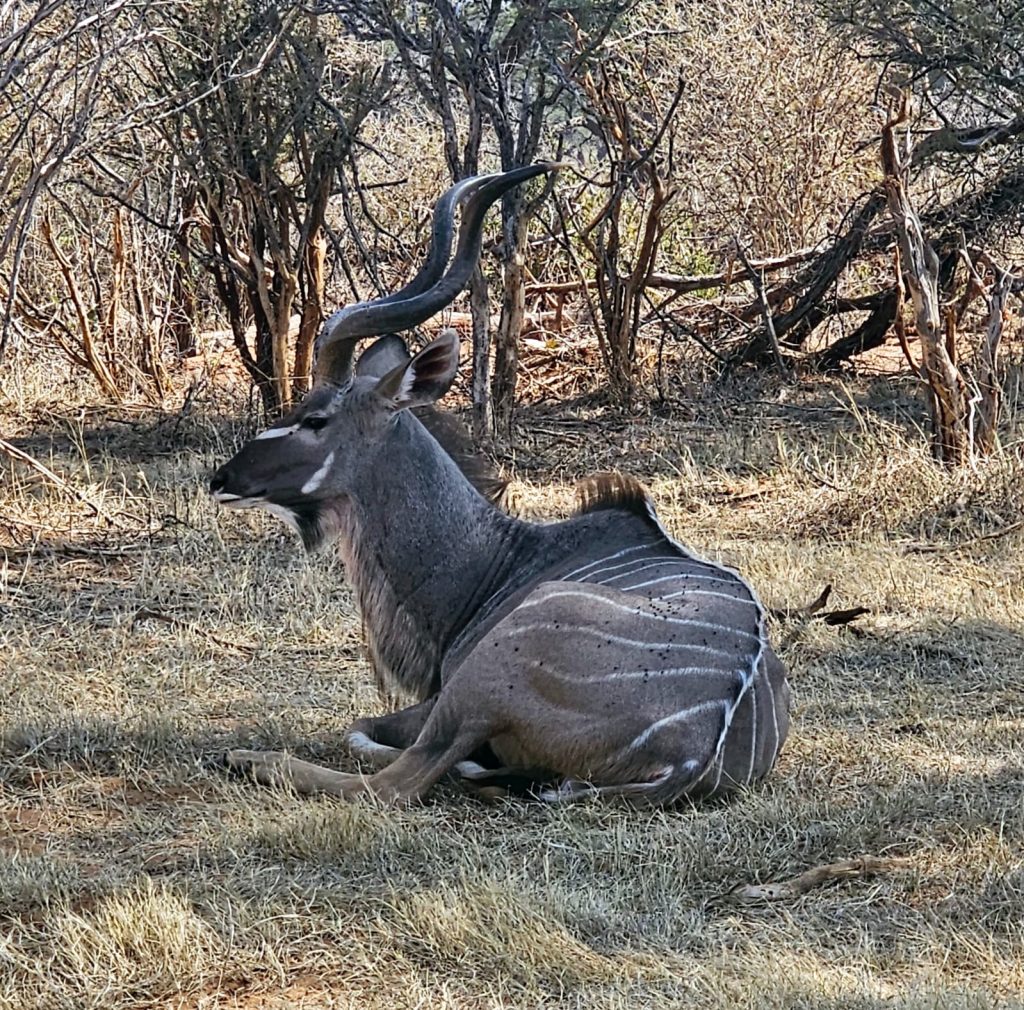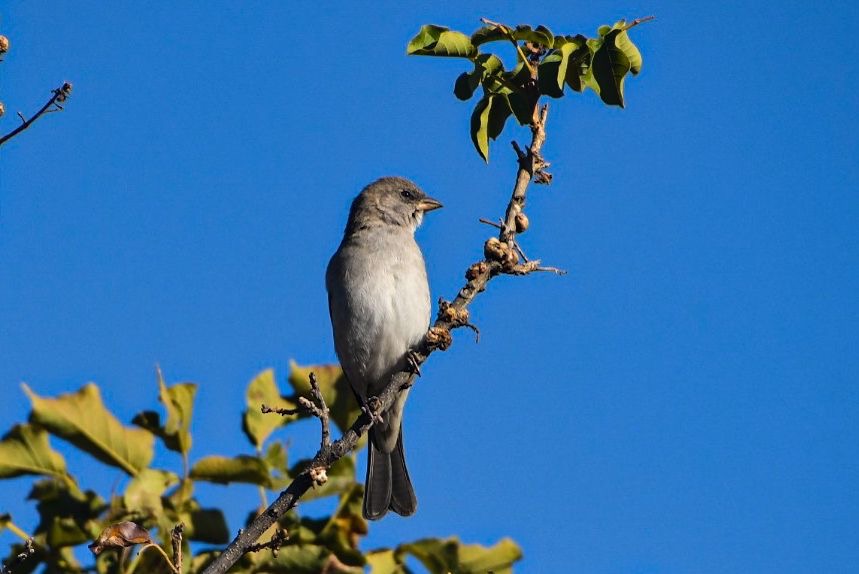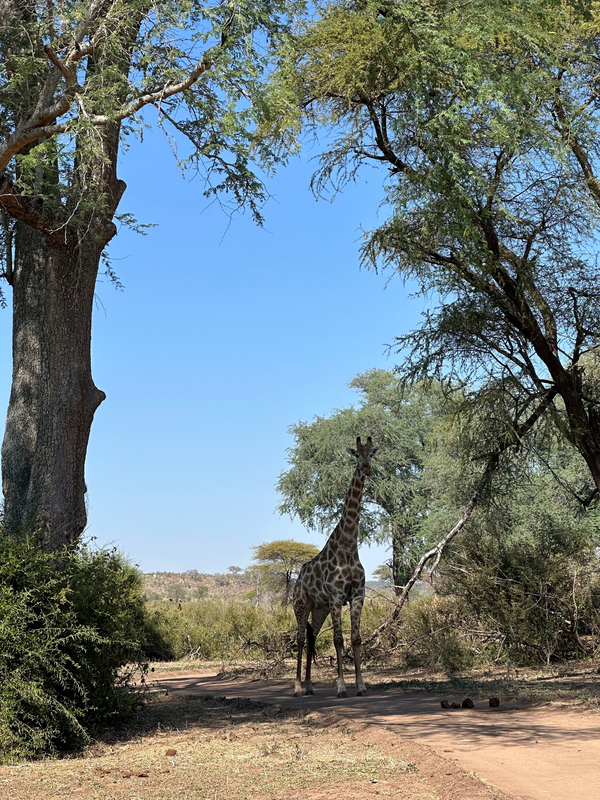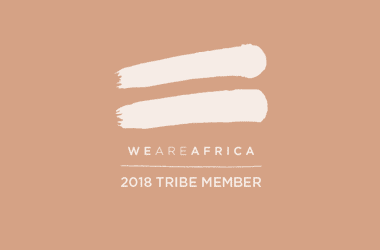Western Zimbabwe’s subtropical climate makes for glorious winters – the months of May, June and July are characterised by warm, sunny days with little, if any, rainfall. Early morning and nighttime temperatures can certainly be icy but the mild weather combined with mid-to-high water season at Victoria Falls and excellent visibility in the bush makes this a great time of year to combine a safari with a visit to the largest waterfall on Earth.
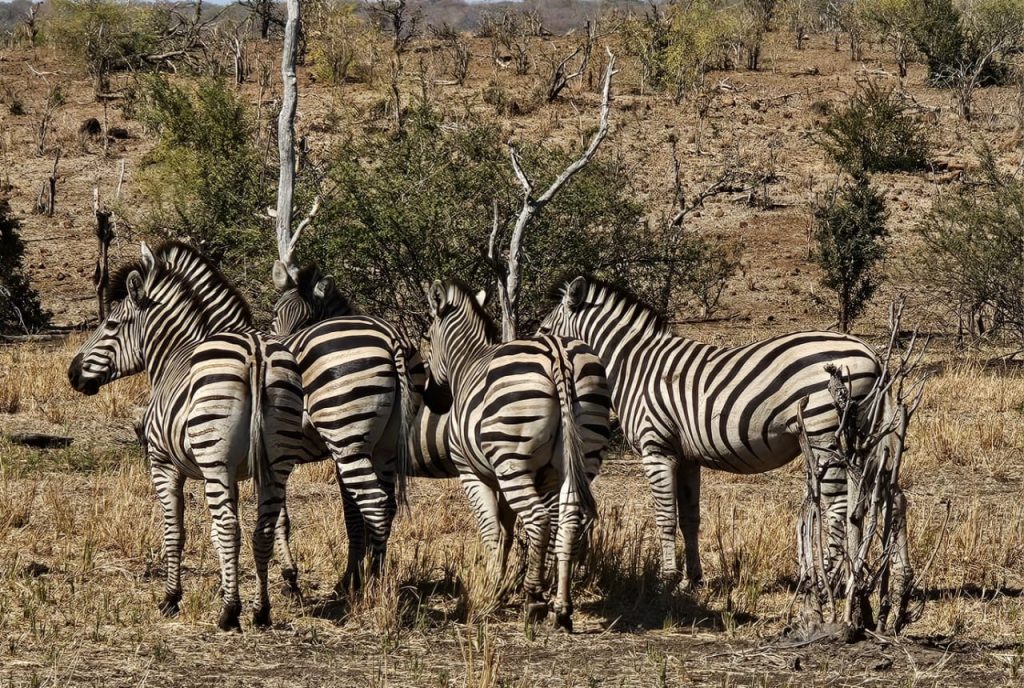
Wildlife Movements & Sightings
Winter game drives at Matetsi Private Game Reserve usually feature numerous sightings of the bigger species roaming the savannah, namely large herds of elephant and buffalo. The lions are never far behind and their colouring against the golden grass makes for extremely pleasing wildlife photos. While lions are regularly seen, we also enjoyed some noteworthy leopard sightings over the winter months, thanks in no small part to the sparse undergrowth making it easier to see these elusive cats slinking through the bush.
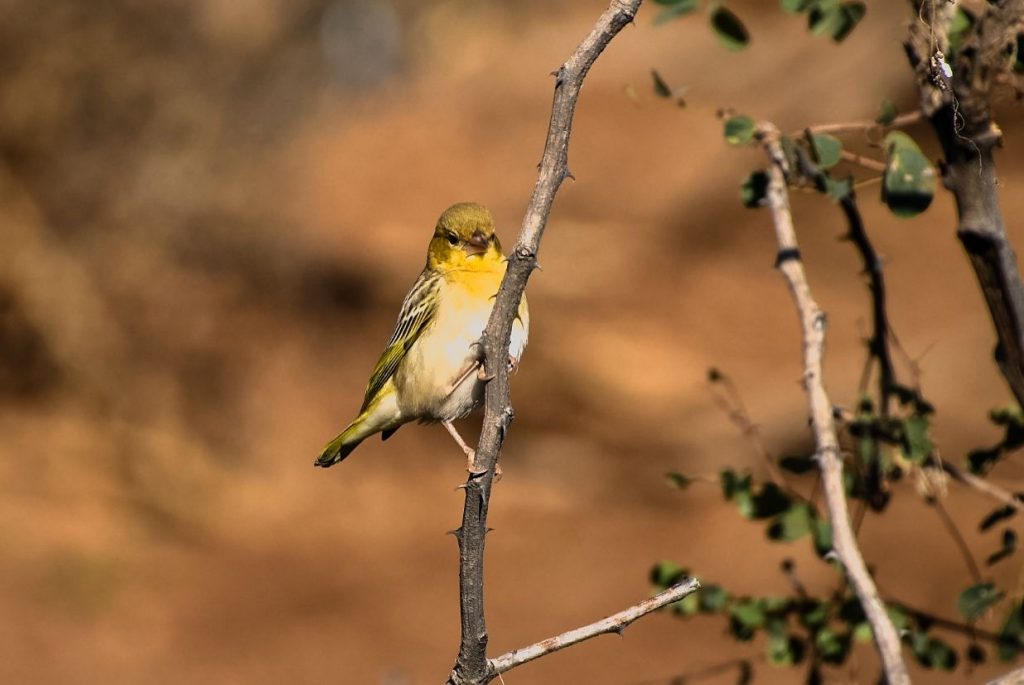
Of particular interest was a thrilling sighting of an aardvark – no doubt also the result of the dry winter landscape – alongside other interesting species like honeybadger, bat-eared-foxes, porcupine, aardwolf, duiker and Sharpe’s grysbok. The Westwood Vlei has played host to significant herds of wildebeest; a species which was completely absent here in the dry season prior to the establishment of the protected area a decade ago. The sight of these curious-looking antelope dotting the grassland in mid-winter is proof positive of the power of conservation.
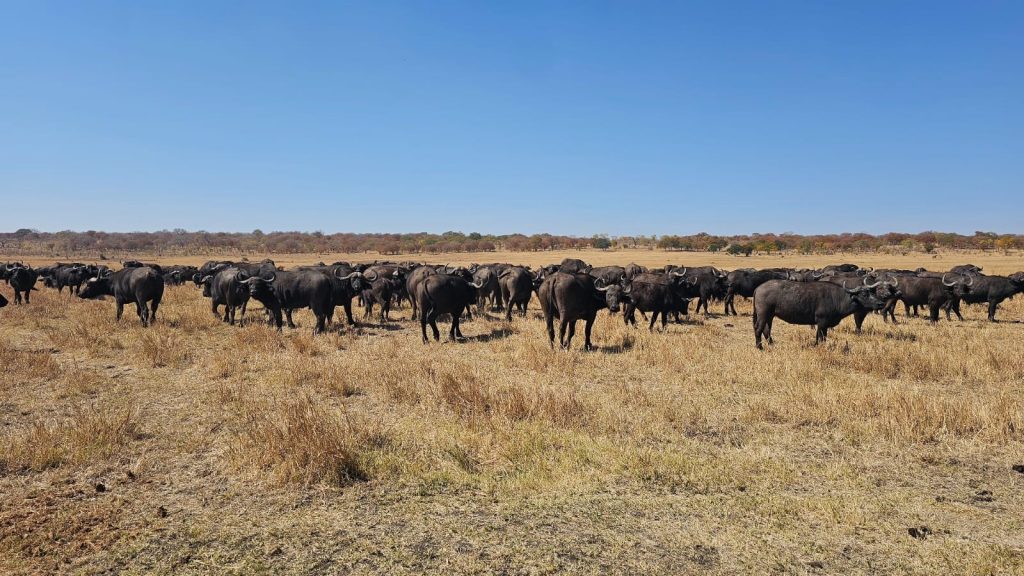
Warthogs are regular visitors to the lodge as well as the back office area, where 15 individuals from three different families made daily appearances over the winter. These little characters, and their friends the vervet monkeys, baboons and squirrels, provide much entertainment for our guests and our team here at Matetsi Victoria Falls.
Repeated sightings of secretary birds in the area leads us to suspect that they may be nesting nearby and, for those as interested in birds as we are, we were delighted to see both pelicans and crested guinea fowl in the vicinity of the lodge over the winter.
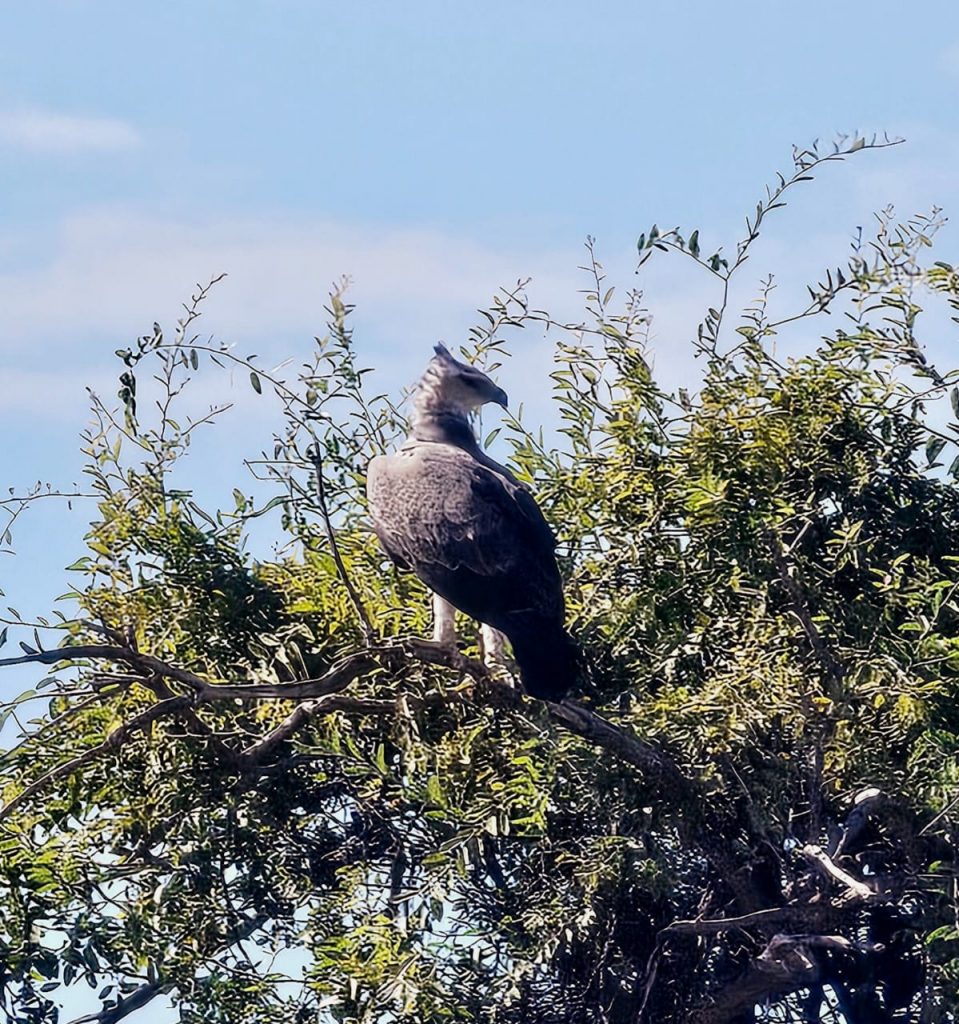
Here are a few curious excerpts from the guiding team’s sightings journal in recent months:
May 3: 80 giraffes along Kudu Alley!
May 15: Midmorning fishing with no luck, then a crocodile pops out close to the edge of the river with a bream in its jaws and started to swallow in front of us – we decided to end the fishing right there! That same day, four cheetahs were seen between River House and the helipad.
May 27: 50 zebras on the vlei!
June 09: Herd of Roan antelope at Charles pan (more sightings of sable, eland and roan through the south in the dry months)
June 14: On a morning game drive just opposite Namakwa Pan, a lone lioness was seen trying to hunt an old lone female buffalo but the buffalo was resisting so decided to come back to camp. On the afternoon drive we found the lioness feeding on the buffalo.
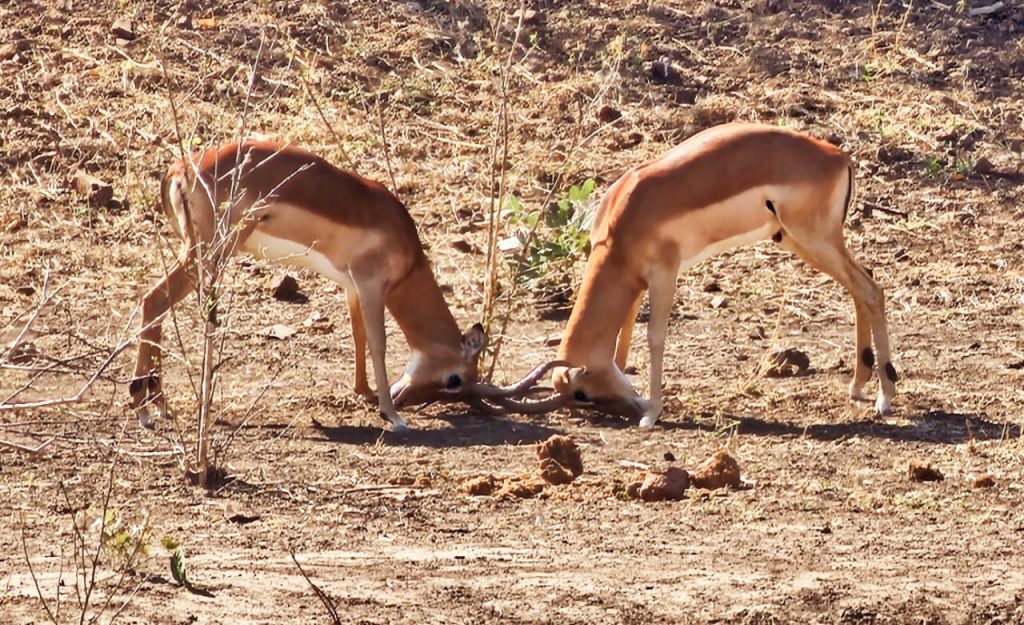
June 15: On another morning drive at Westwood Vlei, we saw two black-backed jackals feeding on the remains of a vervet monkey. The other troop members were watching up in the trees. Not sure if the jackals hunted the monkey or they scavenged it from another predator.
June 24: On a morning game drive we saw an African rock python submerged in the water, maybe waiting for unsuspecting animals to come and drink.
July 26: Watching a breeding herd of buffalos on Nungu when a lone elephant bull walks right into the middle of the herd and suddenly discovered that it was now surrounded by buffalos. It started chasing the buffs as it rushed to a higher ground were it could relax.
July 30: Evening drive around 7pm we witnessed a Verreuax’s eagle owl killing an Egyptian goose at Namakana Pan.
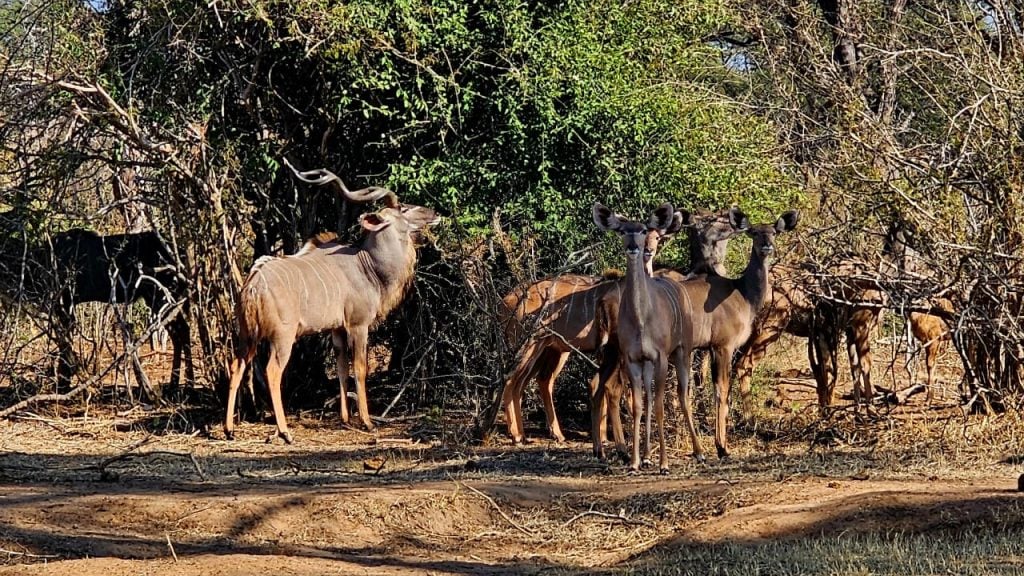
Victoria Falls
The Zambezi River Authority tracks water levels at various points along the river, including at Victoria Falls, and it only takes a quick look at the graph to see the effects of this year’s drought. The blue line showing monthly readings over the past 12 months remains fairly low and flat, without the dramatic peaks usually associated with the middle of the year.
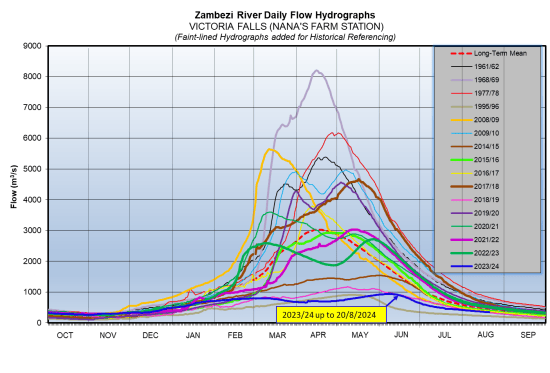
Despite the lack of rainfall, Victoria Falls remains an impressive sight, with water still falling over the majority of its face and thundering into the gorge below. The lighter spray is wonderfully cooling and makes for some spectacular rainbows, as well as beautiful photographic opportunities through the mist.
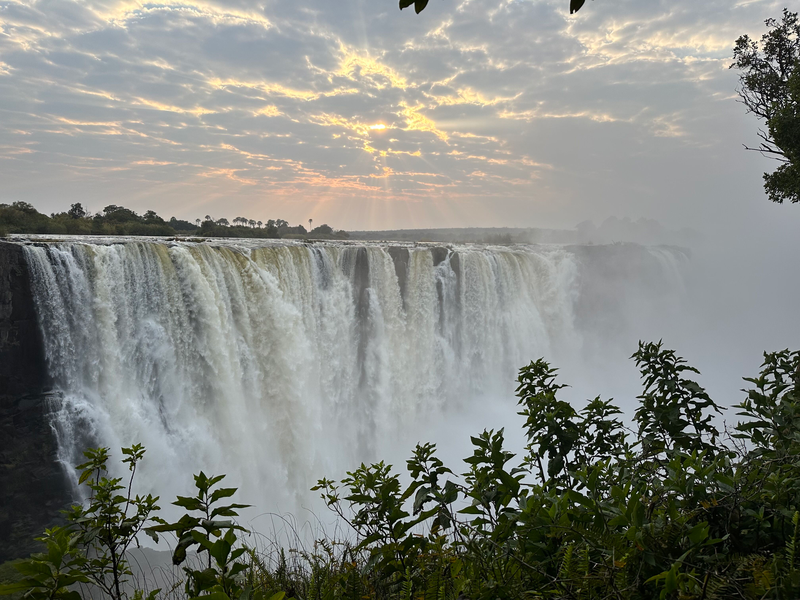
Conservation Update
Drought conditions in this part of the world always present a challenge to conservation operations like ours. Tasked with maintaining the reserve as well as protecting it, Conservation Manager Brian Gurney and his team usually spend the winter months servicing fire breaks, keeping the solar-powered boreholes in tip-top condition (especially with so little other water around) and monitoring population numbers in relation to the available water. The latter involved the relocation of 100 impala from the northern section of the reserve to the south, in order to alleviate pressure on the northern vegetation and water sources.
This operation was no mean feat, and involved significant investment, bringing in the same wildlife translocation team with whom we worked on the waterbuck translocation project in 2022. By use of a helicopter and temporary fencing, the impala were moved into a large transportation vehicle for their journey to the southern part of Matetsi Private Game Reserve.
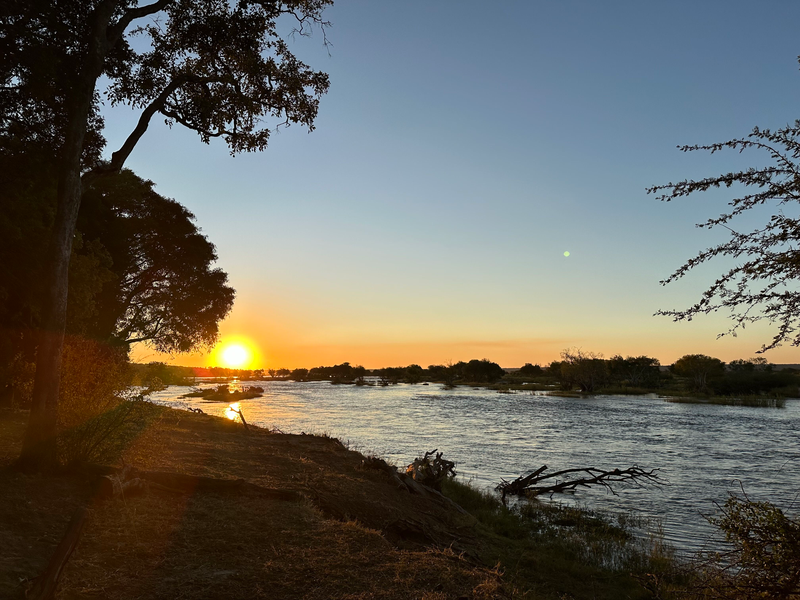
In addition to reducing their impact on the northern part of the concession, this significant number of impala will help to bolster the prey population in the south, and likely result in an increased predator population in time – after all, impala are some of leopard’s favourite prey.
Our anti-poaching team are as busy as ever, sweeping the river for illegal fishing nets and the land for snares, and well as running patrols throughout the protected area. Fortunately, to date this year, we have only lifted six legacy snares, which means that no new snares have been laid in the area.
From time-to-time, our team do sight animals with a snare (typically around their legs), most likely picked up from neighbouring areas. In such cases, we call in the local wildlife vets and assist with the removal of the snares, as has happened with two unfortunate elephants during this winter period.
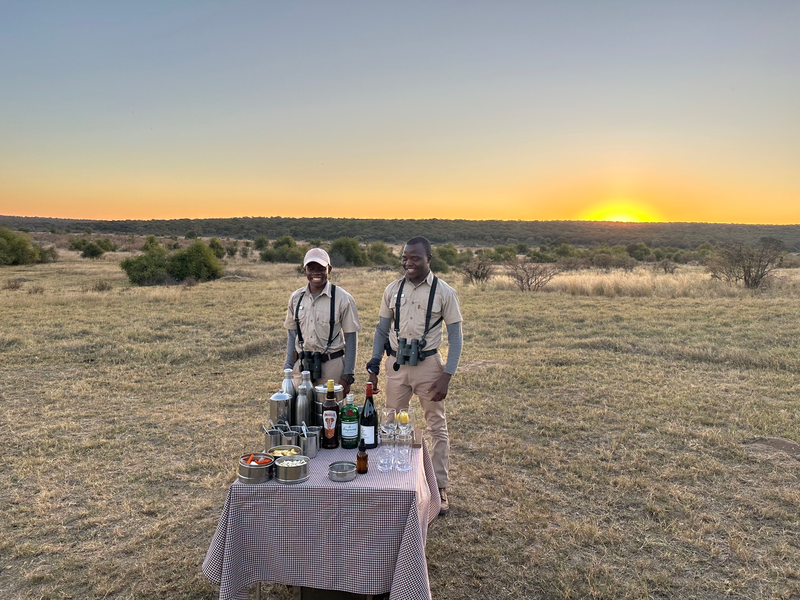
Guest Testimonial
“A magical piece of Africa, with wonderful site beside the Zambezi. The beautiful accommodation is complimented by the cuisine and care of the staff. A superb team. Great game viewing – elephants outstanding. Immerse yourself in nature at its best and be restored. Congratulations Gardiner family on what you have achieved here. Special thanks to Malaka for looking after us and Paul – the best guide in many decades in Africa – for the walk amongst wildlife.” – Amanda, May 2024
